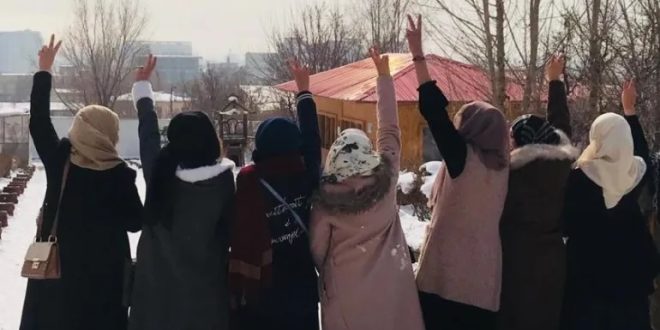Afghan girls navigate secret paths to medical education amidst Taliban ban

KABUL – In a clandestine battle against the Taliban’s ban on women pursuing higher education, Afghan female medical students are forging a secret path towards their medical aspirations. Since the prohibition on women entering medical schools was enforced last December, over 3,000 aspiring doctors face a bleak future as they are denied the chance to take essential board exams.
According to a new Al Jazeera report, hundreds of resilient Afghan girls have embarked on clandestine internships and online studies, despite the obstacles, determined to keep their medical dreams alive. Noor, a medical graduate, turned to a secret hospital internship after months of solo study. The risks are immense, as discovery could lead to expulsion or worse, given the Taliban’s strict measures against women’s education.
The ban not only exacerbates the existing shortage of female medical professionals but also poses a severe threat to women’s health. Afghanistan, already grappling with high maternal mortality rates, is witnessing a potential reversal of the limited gains made in recent years. The lack of female doctors, coupled with the exodus of healthcare workers and the closure of some hospitals, has strained the nation’s healthcare system.
The World Health Organization’s 2020 estimate of 24 daily deaths related to pregnancy or childbirth in Afghanistan underscores the urgency of the situation. With the Taliban’s stringent measures, including the prohibition of girls beyond the sixth grade from attending school, and the imposition of strict dress codes and travel restrictions on women, Afghanistan remains a challenging environment for women’s rights.
As the country loses foreign aid and investment, especially in healthcare, the repercussions are dire. Hospitals face operational difficulties, staff shortages, and inadequate medical supplies. The financial toll on medical professionals like Lima, who navigates an unofficial residency without proper certification, is significant. Her dreams of becoming a doctor are threatened not only by the educational ban but also by societal pressures, as she grapples with the impending choice between her medical career and marriage.
The struggle of these women reflects a broader societal challenge, where the pursuit of education clashes with oppressive ideologies. The international community must recognize the urgency of addressing the plight of Afghan women in their quest for education and professional fulfillment. The resilience of these women serves as a poignant reminder that, despite the obstacles, their aspirations for a brighter future persist against all odds.
Culled from Afghanistan Times

